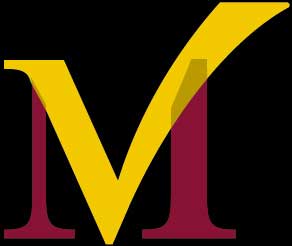During the Second World War Ohrid was occupied by Bulgaria. Meanwhile changes occurred within the Regional Committee of the Communist Party lead by Lazar Kolisevski. According to some data, he came to Ohrid in October 1941 when the Ohrid Communist Group was set up. Members of the Regional leadership were Petar Piruzev, Jacim Spirov, Petar Serafimov, Dimitar Buckov, and Kirli Glavincev. Also a military committee was formed, with the following members: Petar Piruzev, Andon Dukov, Kiril Razmov, Petar Nanov, and Ljuben Cekrejiev.
In the beginning of November 1941 a major breakthrough in the organization of the Communist Party in Ohrid occurred. The Police first arrested Kiro Glavincev, and immediately after him ten other communists from Ohrid. On the basis of the interrogation of the prisoners, the Bulgarian authorities prepared a criminal charge against 15 persons, and 19 people were called as witnesses. The trial took place on 26th and 27th November 1941 in Bitola. Lazar Kolisevski and Petar Piruzev were sentenced to death by hanging, whereas Kiril Glavincev, Andon Dukov, and Jakim Spiroski were imprisoned in a maximum-security jail. Due to lack of evidence, the others were released.
In the beginning of 1942 Kuzman Josifoski-Pitu was staying in the region of Ohrid. He also visited the village Belcista-Debarca, where a Party organization was formed. Petar Piruzev-Majski also attended the meeting. The following year Debarca would become the first free territory in Macedonia. In 1943 the Headquarters of the Peoples’ Liberation Army and the Central Committee of the Communist Party of Macedonia were located in Debarca. In that period, on the one hand there was enhanced activity of the Peoples’ Liberation Units that appeared as governmental body in the free territory in Debarca, but on the other hand, in Ohrid in 1943 numerous communists were either convicted or sentenced. The links between the local committees were almost completely broken. In order to gain better operation, at the end of 1943, the Headquarters of the Regional Committee of the Communist Party was moved to village Meseista. The village offered better conditions, and also it was easier to maintain the links with the Party agencies of Debarca, Struga, and Ohrid. In September 1944 new Regional Committees of the Communist Party were set up. In village Lesani, the region of Ohrid, a Regional Committee for Ohrid, Struga, Debar, Gostivar, Kicevo, and Tetovo were constituted. Vidoe Smileski-Bato was elected Secretary.
Following the order of events it is worth mentioning that the first regular Macedonian military partisan unit, “Mirce Acev” battalion, was set up on Mount Slavej 18th August 1943. Before that, several Parisian squads were constituted. On 1st November 1943 the first Macedonian-Kosovo brigade was formed in village Slivoto.
In November 1943 the Headquarters of the Macedonian Peoples’ Liberation Army passed a decision for establishment of schools within the free territory. That idea was to be put into practice by the Peoples’ Liberation Units. In the second half of November the first Macedonian schools started to operate in the villages Slatino, Ozdoleni, Belcista, Velmej, Lesani, Zlesti, and Izdeglavje. At that time, there were only 4 teachers within the region of Debarca. A report from 20th December 1944 states that there were 42 schools with 68 teachers within the region of Ohrid.
The Headquarters of the Macedonian Peoples’ Liberation Army deemed great importance to the Peoples’ Liberation Boards (PLB). By mid July 1944 such Boards were constituted in all villages of the Ohrid region. Macedonia at the time was divided into 12 regions. The districts of Ohrid, Struga, and Resen were planned to be covered within that region, however it was not realized due to the unfavourable conditions. Thus, a joint Regional PLB for the region of Ohrid and Struga was formed. The historical sources tell us that during October and November 1944 in the region of Ohrid one city, six municipal and 53 rural Peoples’ Liberation Boards were in operation. President of the PLO of the City of Ohrid was Stavre Filipce.
The partizan units liberated Ohrid 15th October 1944. However, it was only for a short period, since they had to withdraw under the pressure of the German forces. The battles for liberation of Ohrid were fought by the units of the 48th Peoples’ Liberation Division, and by the V Brigade of the 49th Division. The rest of the 49th Division units did not manage to get on time at the region of Ohrid because they were engaged in “cleaning up” the enemy forces from Bitola and Resen and in seizing the Macedonian-Greek border. The attack on Ohrid commenced at 4:45 a.m. on 7th November. Heavy battles continued throughout the day. Around 5:30 a.m. the partizan units approached the eastern part of the town. The heaviest fights took place near the barracks. About 4 p.m. the units from the eastern side succeeded to enter into the town and started street fights that continued during the night between 7th and 8th November. On 8th November the German forces were forced out, and Ohrid was liberated.
In the post-War period Ohrid developed as an important industrial and tourist centre. The major part of the industrial capacity consisted of a light industry, and as a result, the environment was preserved. At the same time, tourism developed. Modern accommodation facilities were built, such as hotels, car camps, and resorts of numerous enterprises. During its peak (1975-1988) Ohrid was a true tourist Mecca not only in Macedonia, but also in the wider area of the Balkans. With its attractive festivals and other events (The Ohrid Summer, The Balkans Festival of Folk Songs and Dances, Seminar on Macedonian Language, Literature and Culture, The Struga Poetry Evenings, The Ohrid Swimming Marathon), Ohrid grew into a spiritual centre for uniting and sharing various cultures, traditions, and customs from all meridians worldwide.

Virtual Macedonia
Republic of Macedonia Home Page
Here at Virtual Macedonia, we love everything about our country, Republic of Macedonia. We focus on topics relating to travel to Macedonia, Macedonian history, Macedonian Language, Macedonian Culture. Our goal is to help people learn more about the "Jewel of the Balkans- Macedonia" - See more at our About Us page.
Leave a comment || Signup for email || Facebook |
History || Culture || Travel || Politics














